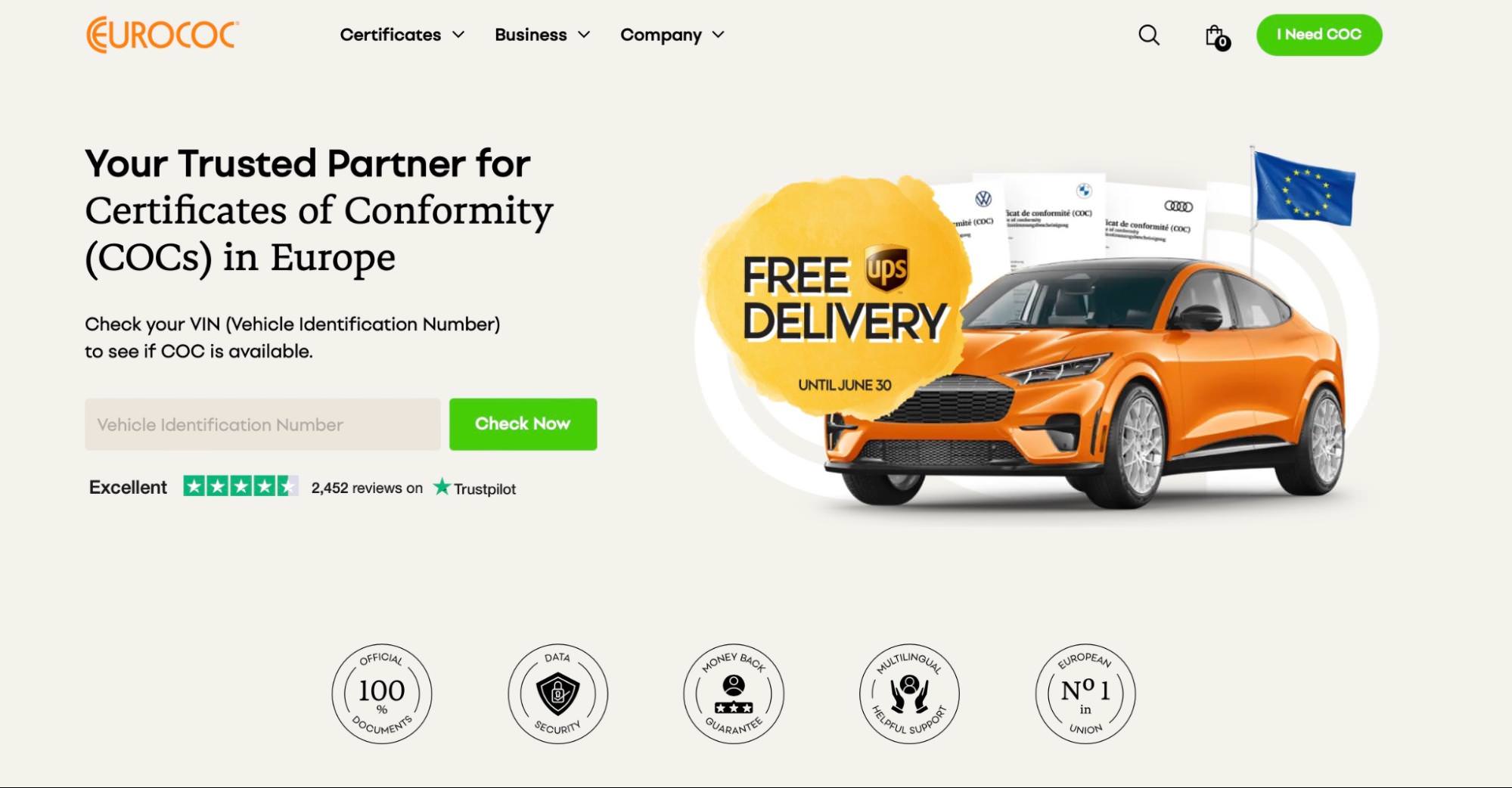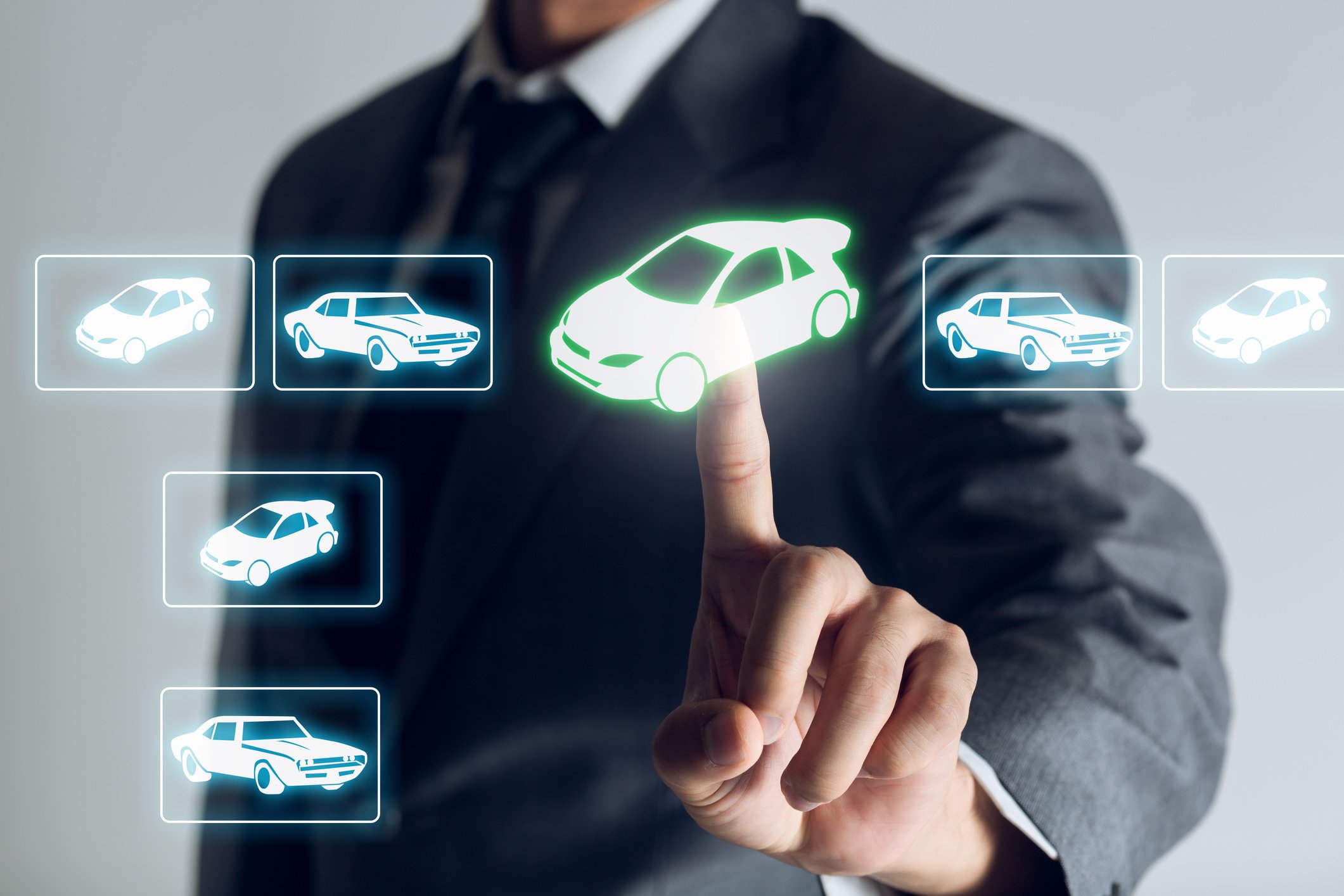- Blog
- How to Import a Used Car to Morocco
How to Import a Used Car to Morocco
Start importing used cars to Morocco by learning what documents you need, what cars you can import, and which taxes you’ll pay.
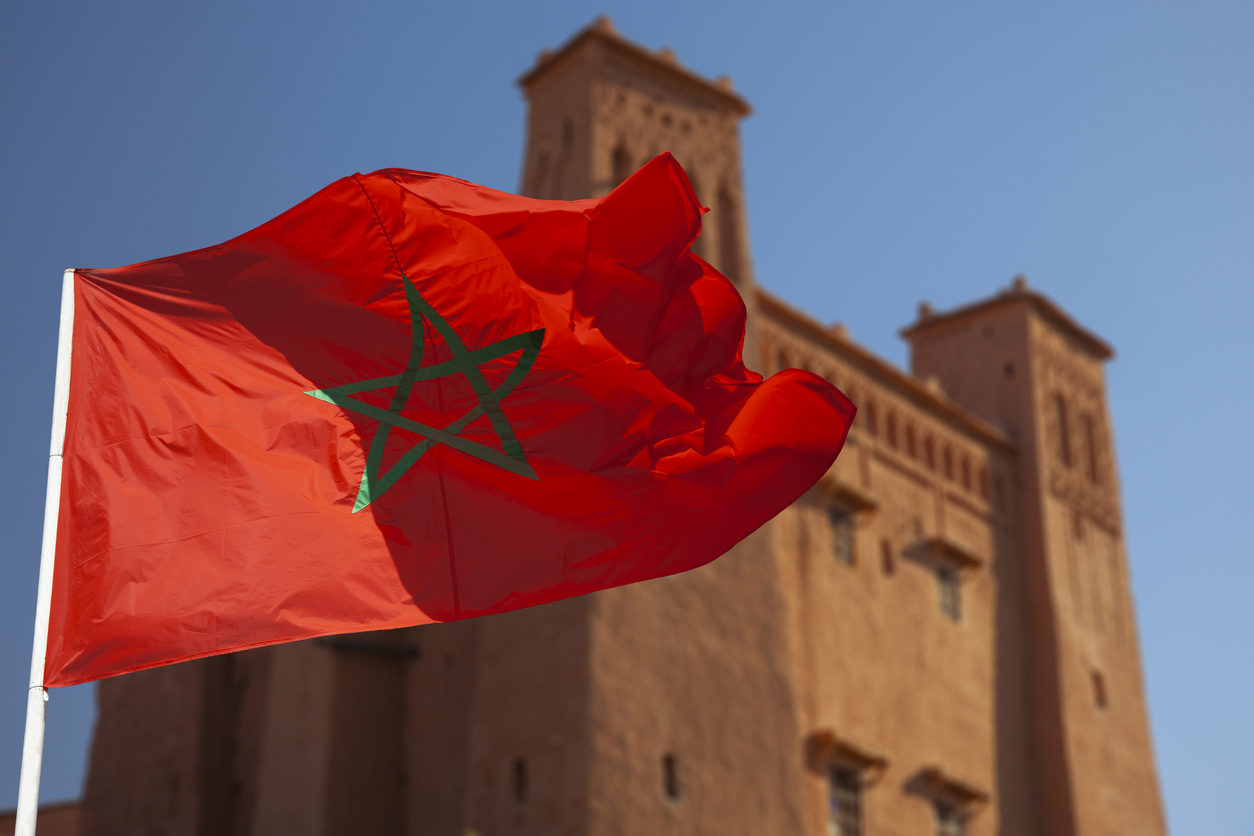
Morocco’s automotive industry has been steadily growing, so now is a good time to be a car dealer.
And if you’d like to stock newer, well-maintained vehicles that you can resell at profitable prices, importing ex-lease cars from Europe is a great option.
But to do that, you’ll first have to learn the rules, prepare the right documents, and plan your taxes, shipping, and timelines.
We’ll guide you through each of these steps, starting with an overview of Moroccan car import regulations to help you stay compliant.
Moroccan car import regulations
To import a car to Morocco, you first need to make sure you’re eligible.
- Moroccan citizens who legally reside in an EU country can buy a car there and handle the export in their own name.
- Foreigners can also import vehicles to Morocco, but they must prove a clear intention to stay in the country.
- Imported cars must be less than five years old from their first registration date. You cannot permanently import a vehicle older than that, even if it’s in good condition.
❗Exception for MREs: Moroccans living abroad (Marocains Résidant à l’Étranger) who are over 60 years old are allowed to import vehicles that are up to 10 years old.
So, if you’re a Moroccan citizen living in the EU and you’ve found a car that’s under 5 years old (or 10 for MREs), the next step is to prepare the required import documents.
Documentation for importing a vehicle to Morocco as a business
Here’s a list of documents you’ll need. Note that you’ll need an official translation into Arabic for some documents, while some (like the purchase invoice) are accepted in French. It’s best to check with the authorities before importing.
► Vehicle purchase invoice
The invoice proves you’ve bought the car and you legally own it. When buying through eCarsTrade, you can easily access your invoices on your Personal Page.
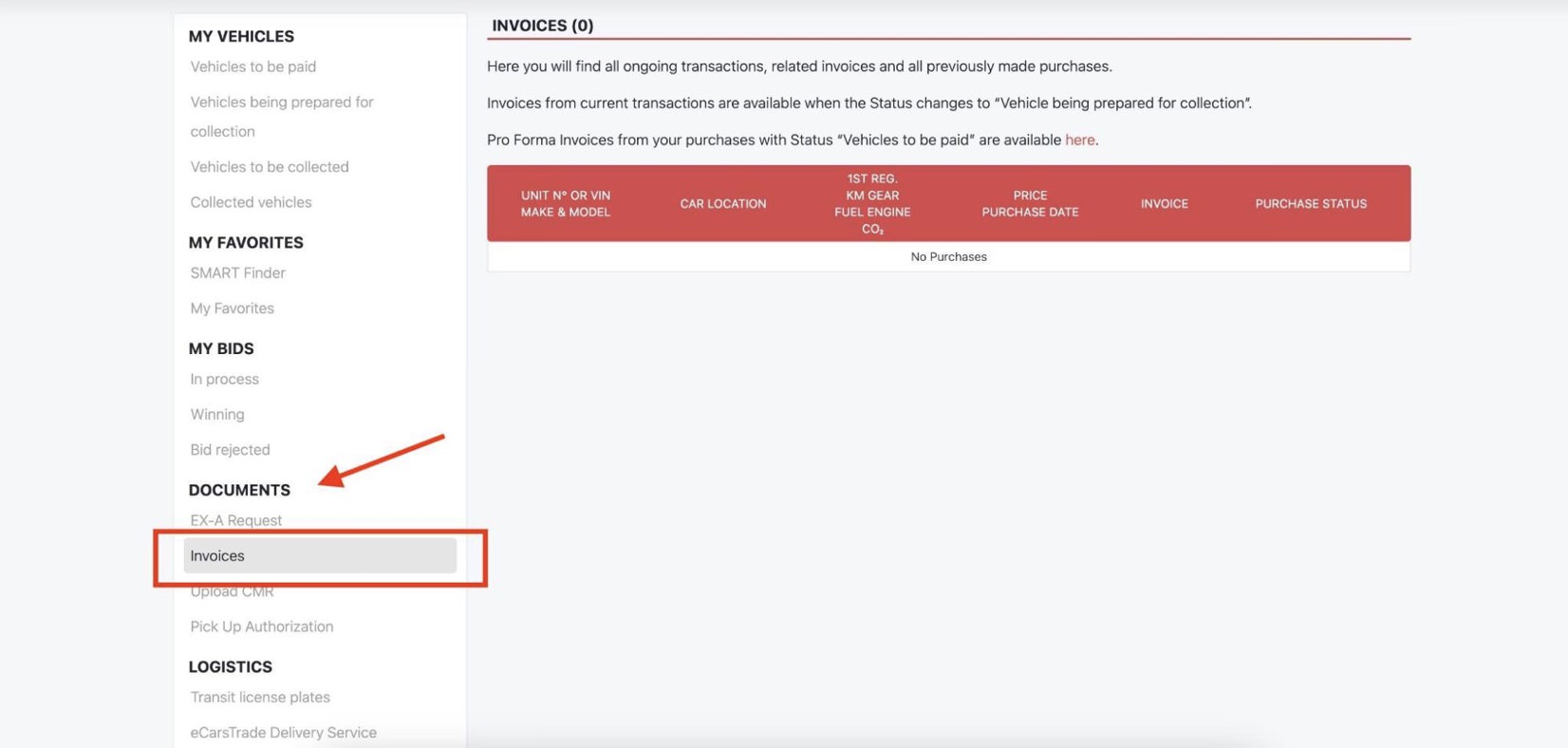
eCarsTrade invoices are generated in English by default, but you can request a copy in French and we’ll issue it to you.
► ID or company registration documents
To import a car, you’ll need to prove your identity or business ownership. If you’re importing as a private person, prepare a valid passport or residence card. For companies, you’ll need a business registration certificate.
You’ll need these documents both for customs clearance and to appear on your invoice.
► Original registration papers
These papers confirm the car’s previous ownership and country of registration. eCarsTrade cars come with their original registration papers, meaning that this piece of documentation is already prepared for you.
► COC
The Certificate of Conformity (COC) confirms that the car meets all technical and safety standards set by the country where it was first registered.
Since you’re importing used cars, note that many vehicles won’t have the original COC.
If the car you’re buying doesn’t include the COC, you can buy one from providers like EUROCOC or COC Europe.
► EX-A export declaration
The EX-A export declaration is a document that shows the car was officially exported. It has to be issued before the car leaves Europe. You’ll need it for customs in Morocco and for your VAT refund later.
If you’re buying on eCarsTrade, we can prepare the EX-A and handle the export correctly. You will need to inform us of the last EU border - this information is mandatory.
✅ You need the EX-A for clearing customs, but also for getting the VAT refund!
Taxes when importing a car to Morocco
When you import a car into Morocco, you’ll need to pay several taxes and fees. Here are the main ones to plan for.
Customs duty (Droits d’importation)
This is the main tax you’ll pay when the car enters Morocco. It’s usually around 17.5% of the car’s value.
If you’re a Moroccan residing abroad (MRE) and over 60, you can get a major reduction on this tax. Under the current customs rules for returning residents, the reduction can be as high as 90%.
You can check eligibility and full details about the 90% reduction in the official Moroccan Customs circular.
VAT (TVA)
The next tax to consider is VAT, or Taxe sur la Valeur Ajoutée. The standard rate is 20%, and it’s calculated based on the car’s total value.
Parafiscal tax
You’ll also have to pay the parafiscal tax. Although the charge is small (0.25% of the car’s value), it still adds to your final customs bill.
Tax calculation example
If you’d like a close estimate for the taxes you’ll pay, visit the official calculator on the Moroccan Customs website.
There, you’ll enter the car details and you’ll get the estimated import taxes. Here’s what the taxes would look like for a VW Golf 1.2 TSI registered in 2023.
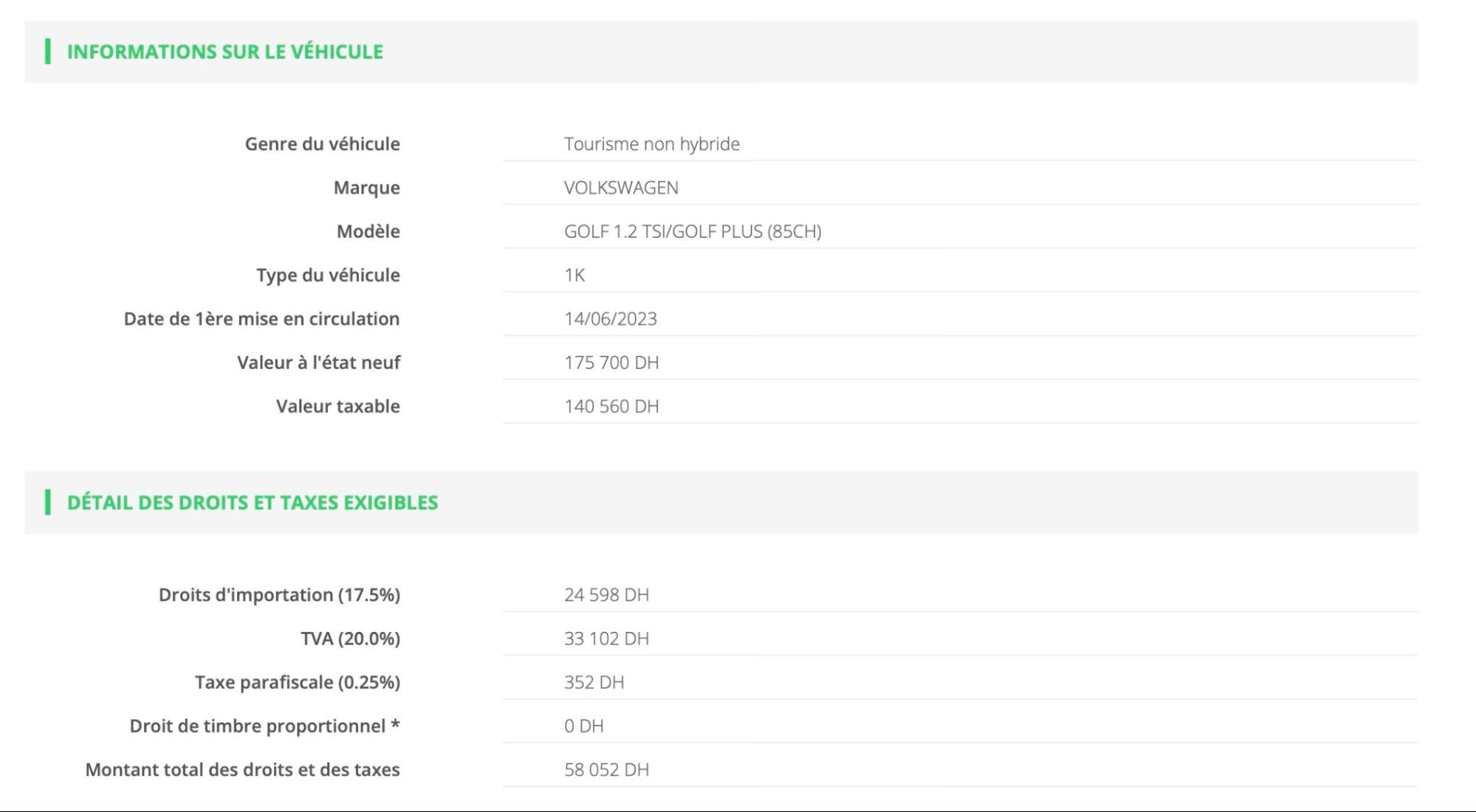
Image source: MCV
The calculator also considers the importer, so you’ll get more accurate details based on whether you’re an MRE (including the 90% duty reduction), along with the vehicle type and other factors.
Step-by-step process - from purchasing a car to importing it to Morocco
We’ve seen import regulations, documents, and taxes. Now, let’s go through the process step by step, from buying the car in Europe to completing the import and registering it in Morocco.
1. Choose and buy the car
When you start looking for a car to import, remember that it has to meet the age limit of under five years.
You can use filters on eCarsTrade to select only those cars that qualify for import to Morocco.
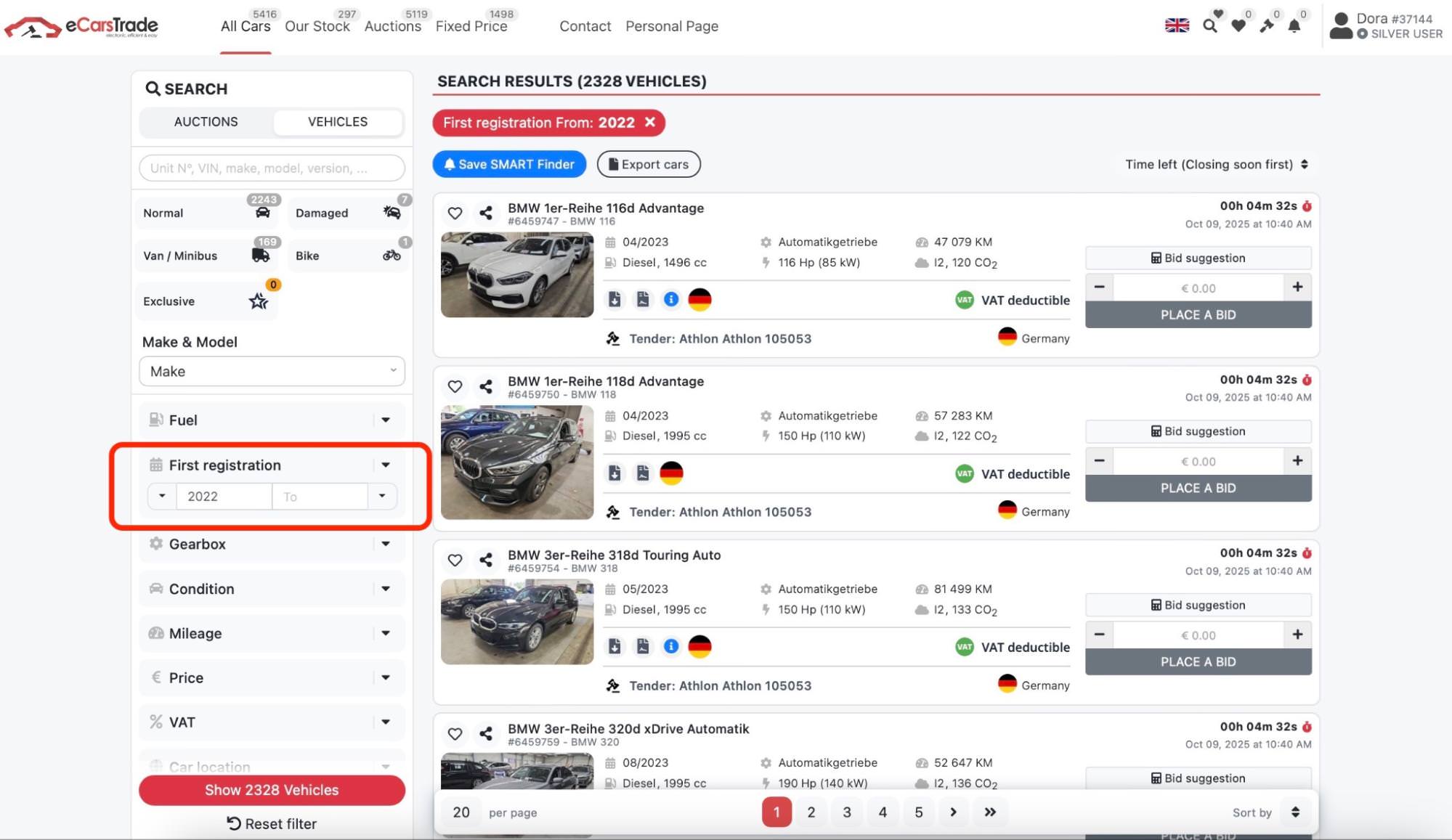
After you’ve won an auction, we’ll issue the invoice so that you can start the import process.
2. Book a ferry
To ship the car to Morocco, you’ll have to book a ferry in advance.
Remember to inform your seller which EU exit point you’ll use because this information is needed for preparing the EX-A export declaration.
Most traders choose ports in France or Spain. The car will travel on transit plates to the port and then continue by ferry to Morocco.
3. Request EX-A
At this point, you should also request the EX-A, since you have already booked the ferry and know the exit port.
So, if you’re buying through eCarsTrade, let us know which EU port of exit you’ll be using and we’ll request the EX-A for you.
You will then receive your MRN number which you can use to track the export status of your car and confirm that it has officially left the EU.
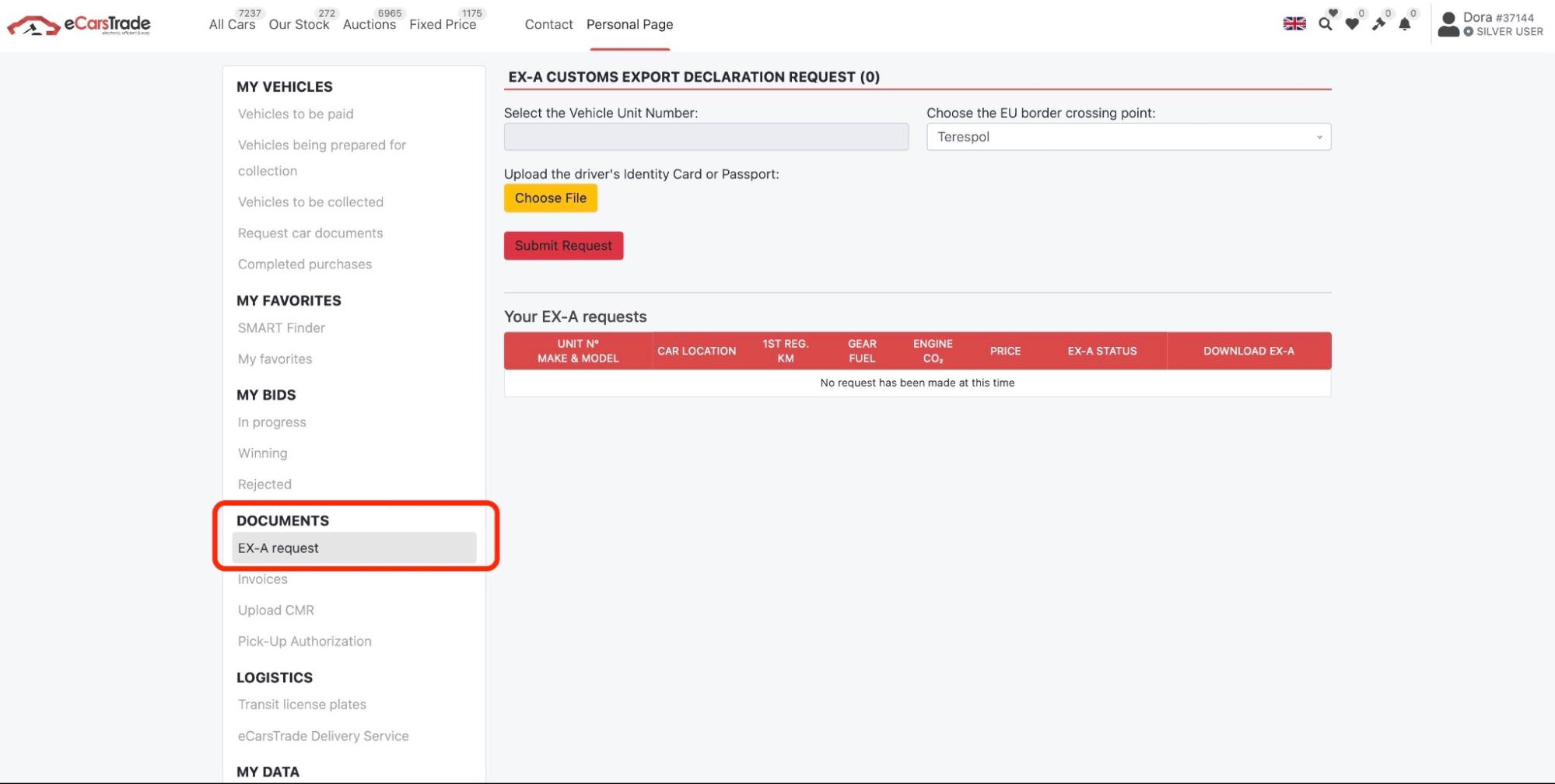
4. Obtain transit plates & pick up the car
Before you pick up the car, you’ll have to get valid transit plates from the seller’s country, in our case that’s Belgian transit plates.
These plates allow the car to travel legally to the EU exit port. When you get the plates, you can pick up the car and start the transport.
5. Check export status
Once the car is exported, we check the export status via the MRN (Movement Reference Number) to make sure everything is processed properly.
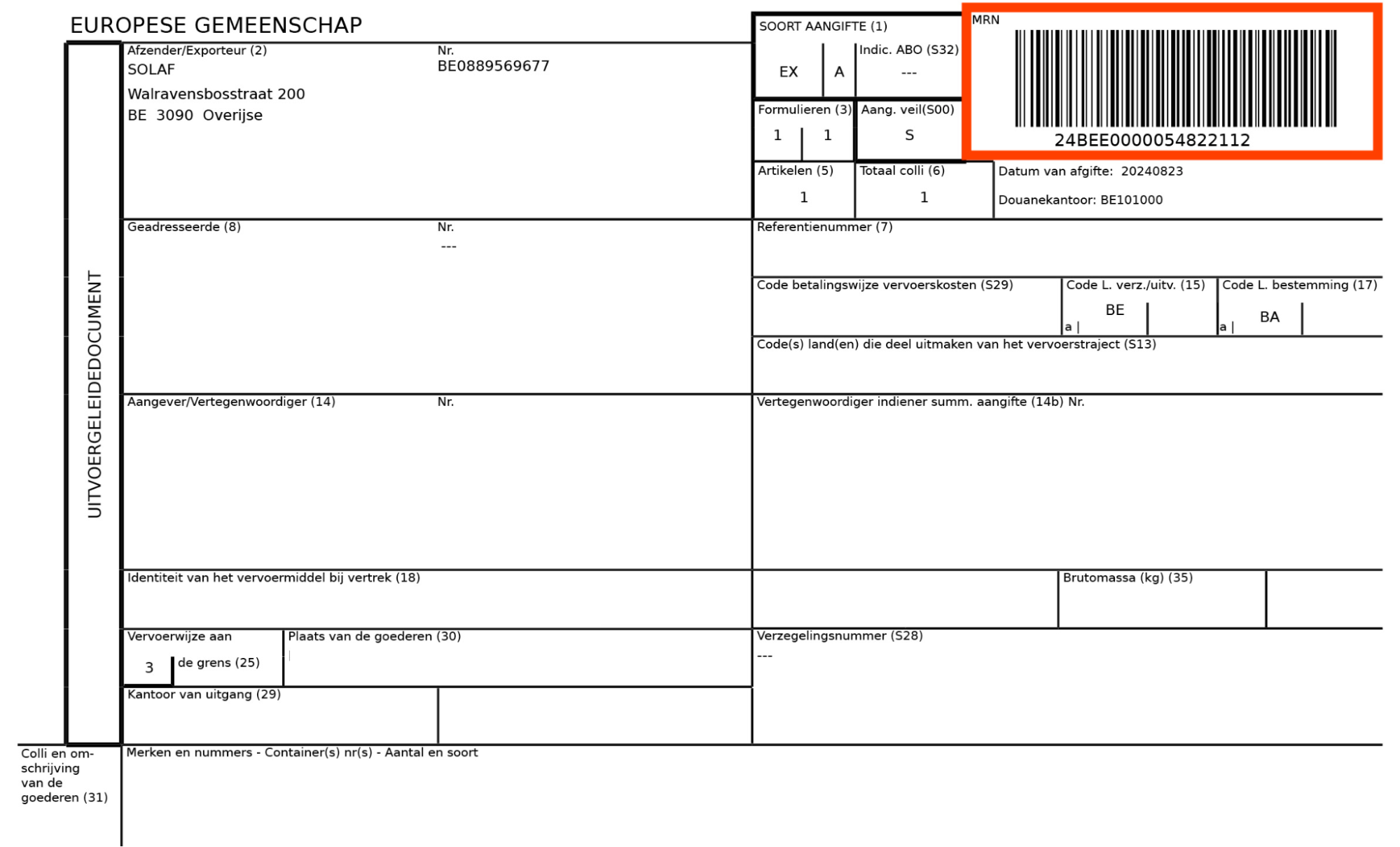
6. VAT refund
Since you're a Moroccan buyer, you paid a VAT deposit for non-EU buyers when buying the car.
You can get your refund when eCarsTrade prepares the EX-A export document.
So, when the car crosses the EU border and the EX-A is registered, you can claim the refund.
Use your MRN number to check that the export has been confirmed, and once you have proof of export, eCarsTrade will send the refund to the same account you used for payment.
7. Clear customs and register the car
When the car arrives in Morocco, you’ll go through customs clearance. You should have all documents ready to make the process quick.
Clearing customs also includes paying the customs duty, VAT, and parafiscal tax, so you'll pay these taxes at this step.
To finish, go to the Moroccan registration office with your ID, proof of tax payment, and all original documents. Once registered, the car is ready for use in Morocco.
Get to know the Moroccan car market
Morocco has a thriving car market that keeps growing year after year. Focus2move reports that after a 12.8% rise in 2024, sales in the first half of 2025 climbed 22.4% to 103,391 registrations.
That’s not the end of Morocco’s momentum: the country has already become the first in North Africa to manufacture EVs, and there are plans to expand EV production further.
In terms of brands that people drive the most, Dacia leads the way.
Dacia is followed by Renault, Hyundai, Peugeot, and Volkswagen. As you can see, the best-selling brands show a preference for reliable, practical, and affordable European models.
It’s also worth noting that Morocco is leading EV adoption in Africa. BYD accounts for most of the electric car sales, followed by Citroën and Dacia.
So, if you’re still deciding what to import, consider adding EVs and hybrids to your list.

Importing a car to Morocco - FAQ
► What’s the age limit for imported cars?
Cars must be under five years old from their first registration date.
► How much are the import taxes?
You’ll pay around 17.5% customs duty, 20% VAT, and a 0.25% parafiscal tax.
► Where can I check the taxes?
Use the official calculator for an estimate based on the car’s details and your importer status.
► Which documents do I need?
You’ll need the invoice, ID or company registration, original registration papers, COC, and EX-A export declaration.
► What is the EX-A?
It’s the EU export document proving the car has left Europe. You’ll need it for customs and your VAT refund.
Importing vehicles from Europe can be complex, but eCarsTrade is here to simplify the process. Learn how to:
